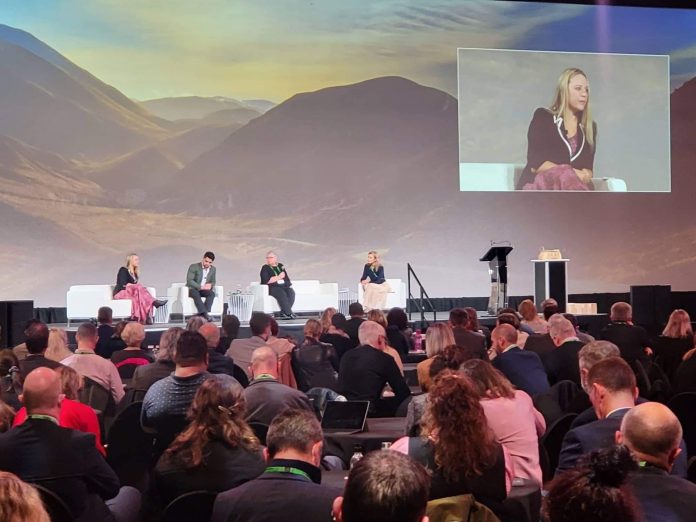
Waitaki, thank you for your support. I have had the incredible fortune to serve as a Waitaki district councillor for nine years, and there is so much I am going to miss about my role. Mostly, it is the people I will miss (and the council geek in me will miss the debate and strategic planning).
What I won’t miss is the negativity.
I’m not talking about the negativity directed towards myself, but generally towards the council, any community project, and any group that dares to have a vision.
We need leaders who will add explanation and context to decisions made and people who will speak up when needed on the online battlefield.
When we lose the people who will fight to move our community forward, and are willing to tell the positive stories, we all lose.
I hope this election we have some enthusiastic voices stand for the council because they care — our community deserves that.
In Waitaki we have an incredibly community-minded way of looking at things, and tend to solve our own problems.
We don’t wait for central government to trot in on their white horse to save us, and for that we should be proud.
Perhaps it’s because we are nestled between a few larger centres and largely forgotten, so if we don’t tackle problems ourselves, they simply won’t be dealt with.
This year I spoke as part of a panel at the Local Government New Zealand National Conference. The conference theme was ‘‘Te wa heke mai — The future’’, and the theme of my preliminary session was ‘‘reimagining local government’’.
I was asked to speak because Waitaki is seen as a leader in the wellbeing space. At a national level, we are held up as a community who finds solutions, who cares, and who isn’t afraid to try something new.
If only we could see ourselves through others’ eyes.
Today I want to shine a light on some of the things that make Waitaki special, the things that make our story one worth telling.
First, some context.
In Waitaki we have an ageing population, with more than 25% of our district aged over 65. Oamaru also boasts the fastest-growing Pasifika population in New Zealand, making up more than 20% of Oamaru’s residents.
With a population of around 24,000, and median incomes and housing prices lower than the national average, we are presented with many challenges. Often we lack easy, effective access to services, and many services we do have are delivered by out-of-town agencies. But these challenges also give us the perfect opportunity to try something different.
The Observatory Hill Retirement Village was one of those opportunities.
With a growing elderly population and low house prices and wages, we lacked companies willing to invest in our aged-care sector — they didn’t think a retirement village in Oamaru was a viable option. So we tried something different. Council partnered with the Waitaki District Health Services Limited to loan the funds needed to build a rest-home and retirement village. We now have an additional 80 care beds and 60 apartments or villas.
This helped address a gap in the aged-care market, while freeing up some under-utilised housing. The loan will be repaid through sales and operational profits, and when repaid, profits will be reinvested into health and wellbeing services locally.
Together we have created new jobs, housing and are helping to future-proof our health care services.
Stronger Waitaki plays a leading role in helping us to identify and address our gaps in services. It is a collaboration that operates at the heart of this community.
Made up of more than 160 groups and organisations, working in partnership with council, it is a research and evidence-based coalition that has made incredible progress in so many areas, and with more resource and longer-term contracts they can build on this success.
With a rich mixture of cultures in Waitaki, there needs to be good support systems in place to help people navigate our systems.
The Oamaru Pacific Island Community Group is a fantastic example of a community offering this sort of support. Talanoa Ako, formally known as Talanga ‘a Waitaki Power Up Plus, is a 10-week programme that brings together students and their families, providing a space for learning and support. This helps Pasifika students with their studies while helping families better understand our education system and the support available, as well as helping service providers identify gaps.
The group has also been absolute leaders throughout our Covid response. It held Covid vaccination drives and provided assistance to people isolating at home.
Looking to the future, the changes to our health system are an opportunity for us. We need to focus on long-term outcomes and overall health improvement. To put it simply, we need to put the patient at the centre. Effective planning can improve our preventive and early intervention services.
To be able to offer services locally we need to build on our capacity and capability, meaning long-term contracts, provided locally. This will help address our gaps while offering up-skilling and job opportunities for our community, from within our community. A holistic approach, working with local businesses to identify the skills needed and matching these to education opportunities.
There is so much work already being done in this space, but the future for local government review gives us the unique opportunity to reimagine how our community could look if we could set our own destiny.
Our community has a great track record, and is well placed to lead in this space.
Let’s support those willing to reimagine, and be the masters of our own destiny.
Thank you for your support over the past nine years — over and out.
Melanie Tavendale is Waitaki’s deputy mayor



